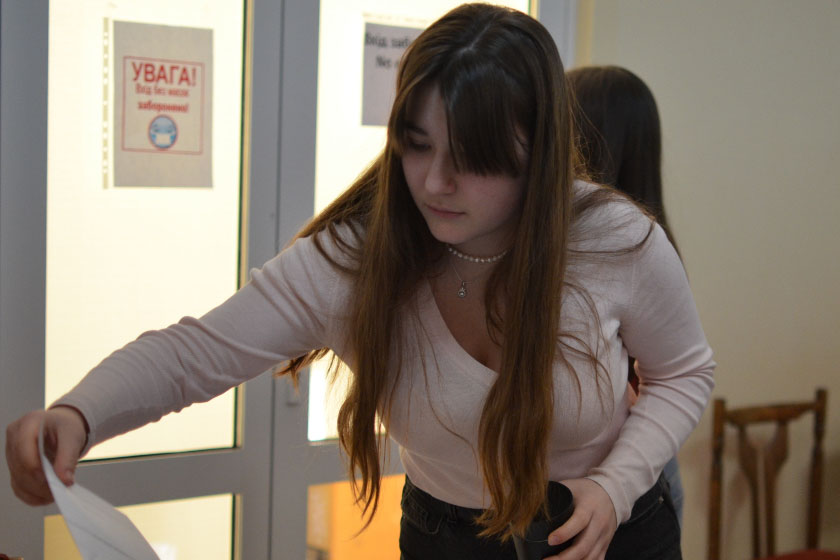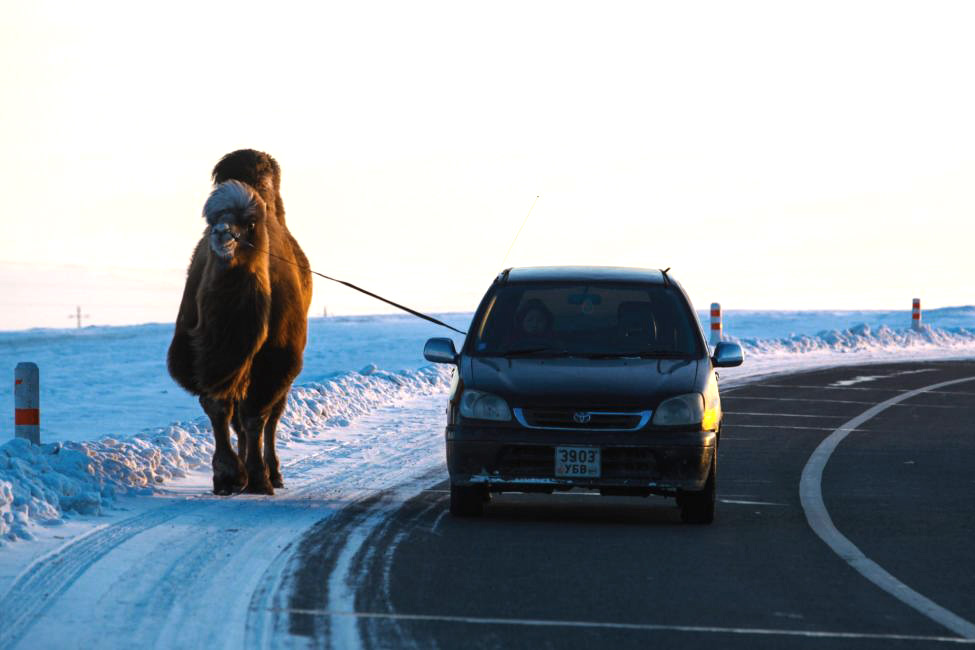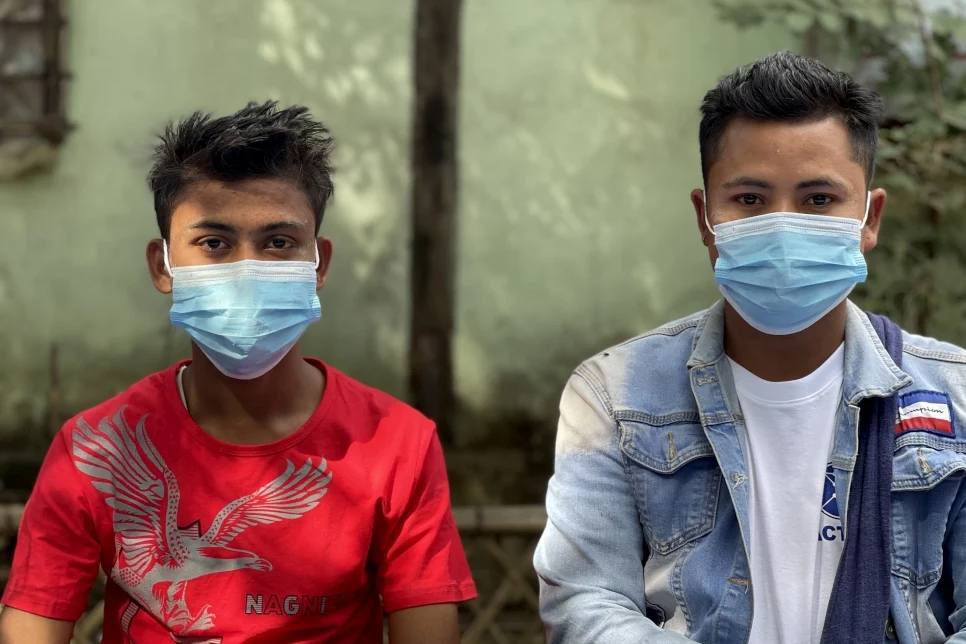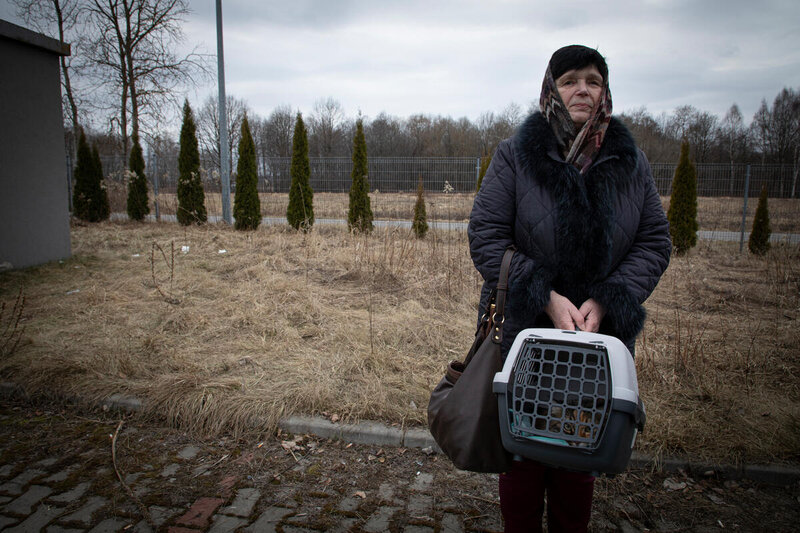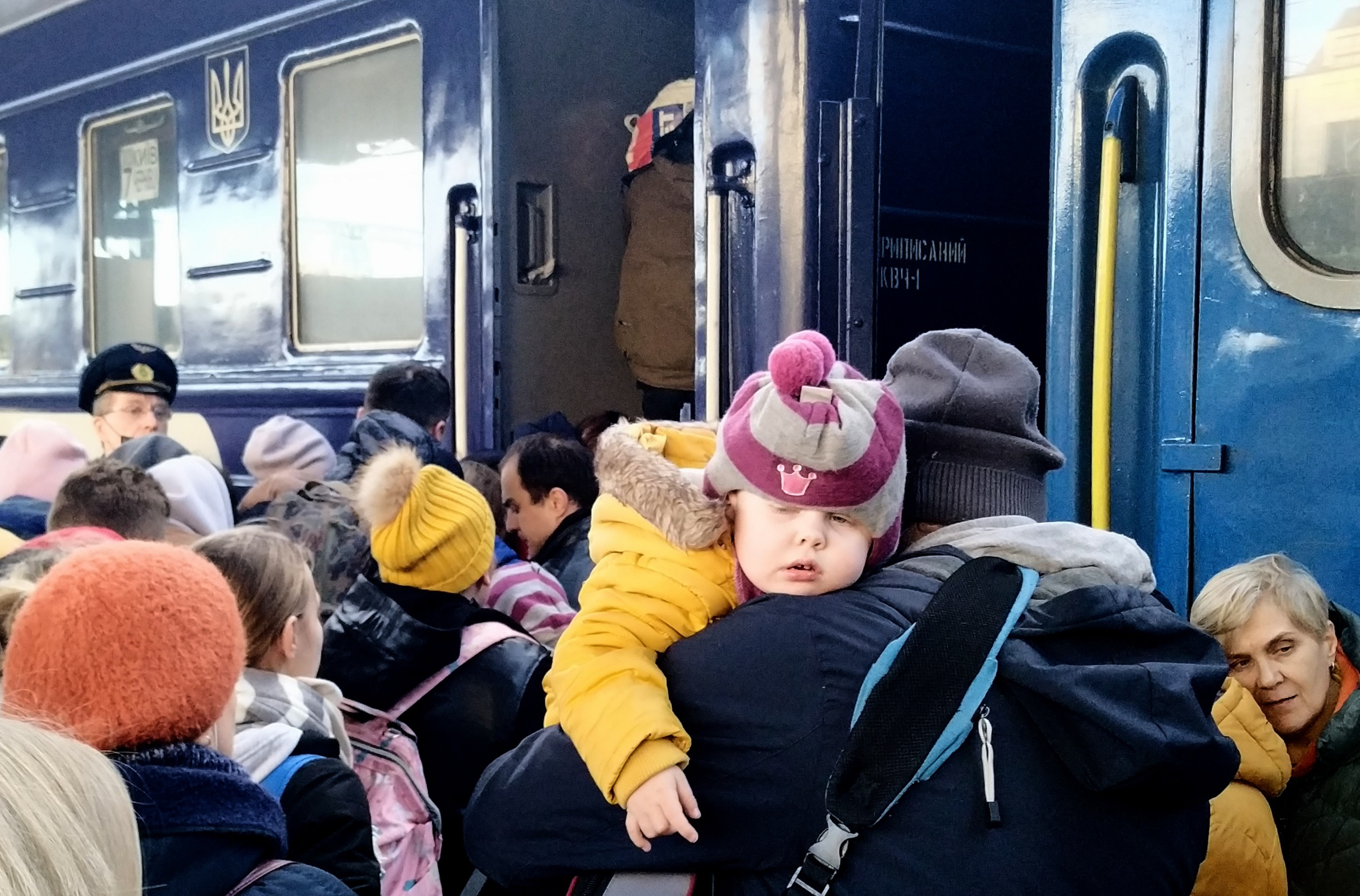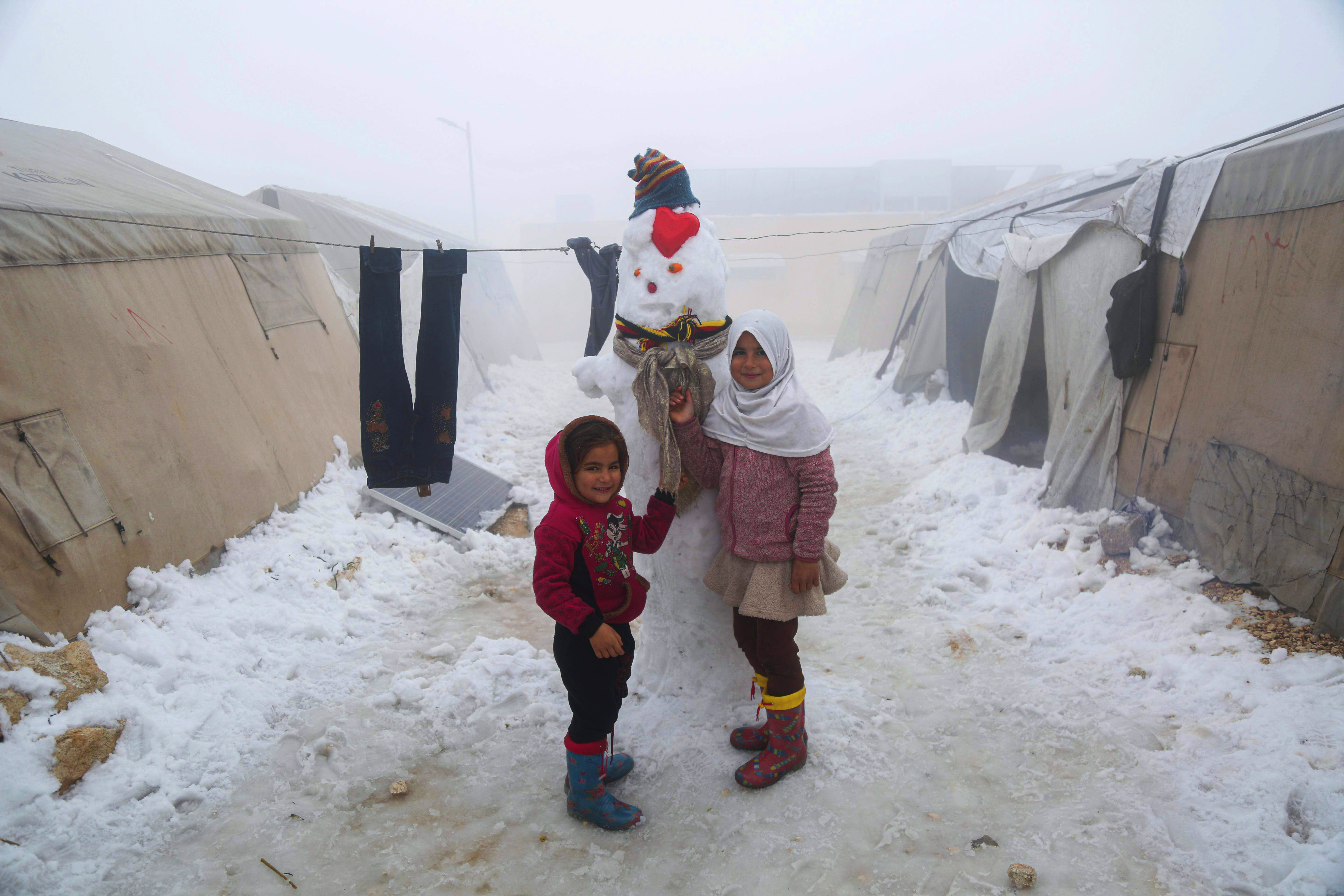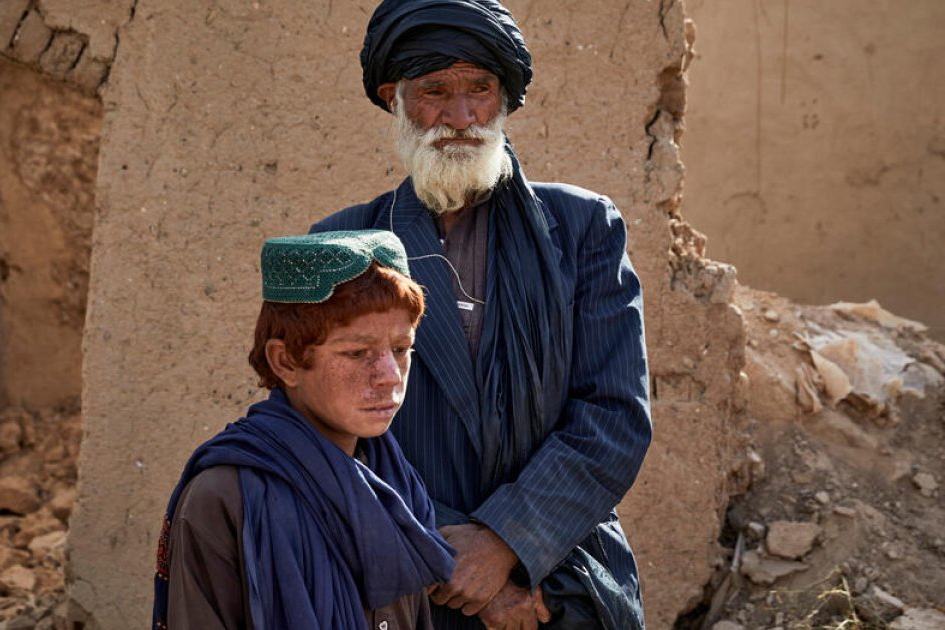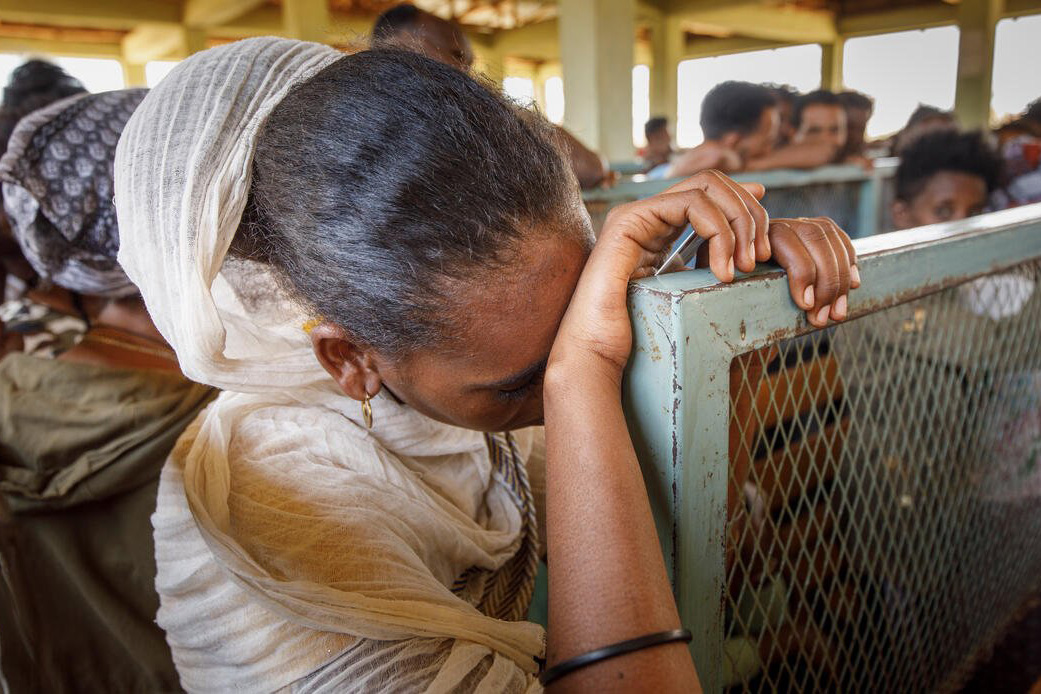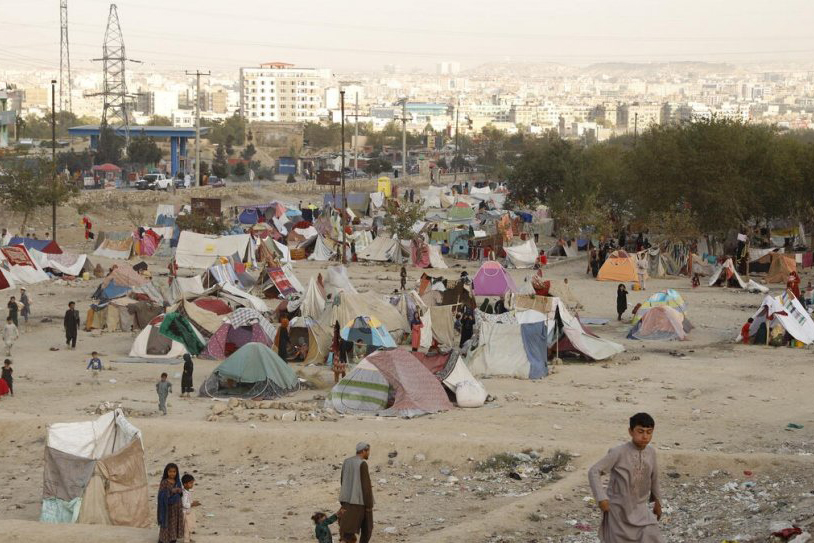11th-grader Viktoria Kravets has had to set aside textbooks for now and is helping her countrymen as a volunteer registering refugees with Tvory Volunteering Centre, which works with Molodvizh, a peer-to-peer youth organization and UNFPA partner. About a third of her friends and relatives have left Ukraine. But she's staying: "I never thought I would be involved in this kind of activity – helping hundreds of people a day looking for transport to the border or distracting them from horrible thoughts.”
Displaced Persons and Refugees
Natasha's journey: a Ukrainian refugee in Portugal
A Ukrainian refugee shares her journey escaping war in her homeland. Nataliia "Natasha" arrived in Lisbon, Portugal with her daughter at the end of a daunting journey, when she had to leave her husband behind. She tells her emotional story to UN News.
Research by IOM in Mongolia shows a migration ban aimed at reducing overpopulation in Ulaanbaatar only increased the vulnerabilities of the capital city’s urban migrants. IOM found that rural-to-urban migration improved the lives of most internal migrants in Mongolia, providing them with more and better job opportunities and increasing their incomes. Due to development discrepancies between rural areas and the capital, Mongolia has experienced a dramatic rural-to-urban migration flow, raising Ulaanbaatar’s population to almost 1.5 million – half the country’s total.
Youth groups made up of Rakhine and Rohingya members are coming up with solutions to shared challenges in Myanmar’s ethnically divided Rakhine State.
Almost an entire generation of Syrian children are growing up as refugees in neighbouring countries who have either never seen or have no memory of their homeland.
Information for media: If you would like to use this video to communicate refugee stories or require B-Roll, transcripts, stills or much more information, please visit UNHCR's media page.
The World Food Programme is calling for US$570 million as it kicks off an emergency response to the Ukraine crisis. The organization is putting critical supplies in place as the UN says more than a million refugees have crossed into neighbouring countries. Ljudmila, 70, could not bear to leave her cat behind as she embarked on a six-day journey to Poland. WFP is working with UNHCR, the UN Refugee Agency, to assist 300,000 people outside Ukraine’s borders.
"As conflict and tragedy strike Ukraine, the world is watching." Stand with UNHCR Goodwill Ambassador Cate Blanchett and donate today, to help us stay and deliver life saving aid to people fleeing Ukraine.
Rockets have been “raining down” on Ukraine’s cities and hundreds of people have been killed or injured since the Russian military offensive began, said the UN Secretary-General, at the launch of a $1.7 billion flash appeal to provide urgently-needed assistance. António Guterres’s comments came as latest UN data indicated that 677,000 people have fled Ukraine since 24 February: “United Nations agencies and our partners are now working 24-7 to assess humanitarian needs and scale up aid, particularly to women, children, older people and those with disabilities.”
While the arrival of COVID-19 vaccines last year raised hopes of a way out of the pandemic, it also brought fresh waves of rumour and myth. Seeing the need to counter such myths, Laban and fellow volunteers, took action. They received guidance and verified information on the vaccine from UNHCR, to help them fight misinformation and answer the many questions people had. As COVID-19 spread, their network of 120 volunteers from the Great Step Initiative, a community-based organization that provides mental health services to refugees in Nigeria, swung into action to fight misinformation.
The snow fell thick and heavy in Idleb and Aleppo. Pretty white blobs of cotton. The children tried to get a grip on the slippery, slushy floor of this winter wonderland that destroyed homes in tents, schools in caravans. Yet there were snow fights, and someone made a snowperson with a heart. UNOCHA mobilizes and coordinates humanitarian assistance to people in need worldwide.
The end of the fighting in Afghanistan this summer meant this family could return to their house in Marja – a war-ravaged farming town in southern Helmand Province – after six years of moving between temporary dwellings. But the sight that greeted them on their return a few weeks ago was one of devastation. The entire back section of the house, located near a now-abandoned military base, had been reduced to a rubble-filled husk. There is hardly a building in the town that does not bear the scars of the conflict.
Afghanistan is on the brink of a humanitarian catastrophe. Following the withdrawal of US troops and the international sanctions imposed on the Taliban regime, the onset of the harsh Afghan winter has brought rising prices, and food has become increasingly scarce. Schools, clinics, and hospitals across the country have stopped functioning. The United Nations is launching a joint 2022 Afghanistan Humanitarian Response Plan and Regional Refugee Response Plan on 11 January at 11:30 CET. Watch the launch on UN WebTV.
Eritrean refugees wait to receive humanitarian aid at Mai Aini refugee camp in Ethiopia’s Tigray region. Conflicts, old and new, along with the increasingly disastrous impacts of climate change, drove a devastating rise in the number of forcibly displaced people this year. From Afghanistan to Ethiopia, people were uprooted by violence, persecution and human rights violations. Many of them faced additional hardships resulting from the COVID-19 pandemic, extreme weather, and increasingly restrictive asylum laws and border policies. UNHCR staff and partners were on the frontlines of new emergencies and ongoing crises in 135 countries around the world this year, but there were a number of situations that stood out due to their scale and complexity, as well as some memorable moments that showcased the talents and resilience of people forced to flee.
In Kabul, nearly 50,000 Afghans displaced from other parts of the country by recent fighting are desperate to receive aid before winter sets in. With winter fast approaching, temperatures in the capital are already reaching close to 0°C at night and may dip to as low as –25°C in mid-winter, putting those sleeping outside at risk of hypothermia. Afghanistan is facing a worsening humanitarian emergency with the economy near collapse and about half the population now reliant on aid. There are more than 3.5 million people displaced by conflict inside the country.
UN-Habitat renews its commitment to furthering the implementation of the SDGs by offering governments practical expertise in urban internal displacement contexts and in durable solutions.

